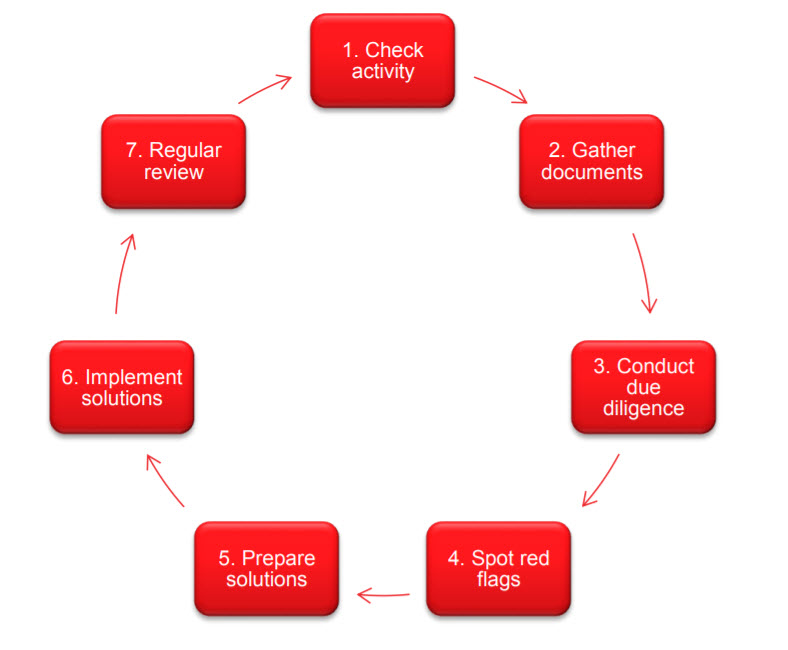29 March, 2019
In March 2018, the Indonesian government introduced Chapter 99 as a new addition to the Indonesian tariff system under a new regulation1. Chapter 99 covers intangible goods (i.e., software and other digital goods that are transmitted electronically) that previously were not covered under the Indonesian tariff system. Under the new regime, intangible goods are subject to 0% import
duty tariff.
Because the WTO moratorium is still in place, it seems that the government has not shown any intention to increase the import duty tariff for intangible goods. To date, the import duty tariff for intangible goods remains 0%. Even so, goods that are classified under the new chapter 99 may still be subject to 10% VAT and generally 2.5% Income Tax Article 22 for companies that have API/NIB2 meaning there is still some additional tax collection for the government due to the imposition of import duty for intangible goods. Our assessments are below.
How to calculate the duties and taxes
Pending further implementing regulations, the calculation of duties and taxes for import of intangible goods may be the same as the calculation for general goods,as follows:
- Import duty is calculated from the customs value. For instance, if an imported digital good has a customs value of USD 100, then the duty would be USD 0
- Import taxes (i.e., VAT and income tax art. 22) are calculated from the import value. So, if an imported digital good has a customs value of USD 100, then the VAT would be USD 10 and the income tax would be USD 2.5.
| We set out below the detailed calculation | |
|---|---|
| Customs value | = USD 100 |
| Import duty |
= 0% x customs value |
| Import value | = customs value + import duty = USD 100 + USD 0 = USD 100 |
| VAT | = 10% x import value = 2.5% x USD 100 = USD 2.5 |
| Income tax art. 22 | = 2.5%3 x import value = 2.5% x USD 100 = USD 2.5 |
Therefore, it is clear that import duty imposition of 0% on intangible goods increase the state's collection of import taxes. If the government decides to increase the import duty tariff, the tax collection will be higher as well.
Declaration on import of intangible goods
Since currently intangible goods can be classified under HS Code Chapter 99, goods that fall under that chapter also need to be declared in the import declaration form. There is no guidance yet on this.
However, the declaration on importation of intangible goods should in general have the same elements as declarations for other goods for example value of goods, name of importer and details of imported goods.
Following the rapid development in technology and business, we expect there will be more developments in the government's approach in terms of the procedure of customs declaration for intangible goods. But we do not think that the declaration procedure would be more complicated than the general import declaration procedure for tangible goods. If there is an issue, we would guess that it would be on how to determine the value of the intangible goods
How to anticipate and how can we help
To anticipate future risks for companies that import intangible goods on a more regular basis, we suggest that companies conduct internal checking on their import activities that involve intangible goods, and check the classification of their imported intangible goods. For example, companies need to check whether they have any technical agreements with any offshore parties that involve electronic transfer of intangible goods.
A sample of the flow of internal checking is as follows:
We would be able to help companies in performing tailored checking on this import data or reviewing any relevant agreement in a customs due diligence.
For further information, please contact:
Riza Buditomo, Partner, Hadiputranto, Hadinoto & Partners
riza.fadhli.buditomo@bakernet.com
1 Ministry of Finance Regulation No. 17/PMK.010/2018 on the Second Amendment of
Regulation No. 6/PMK.010/2017 on Stipulation of Goods Classification System and Import
Duty on Imported Goods ("Regulation 17"). This regulation became effective on 1 March 2018.
2 Ministry of Finance Regulation No. 34 of 2017 as amended by Regulation No. 110 of 2018
on Imposition of Income Tax Article 22 related to payment of goods and activity in the field of
import or business activities in other fields. For those companies that do not have API/NIB,
generally a 7.5% income tax rate will be applied.
3 Assuming the importer already has API/NIB






